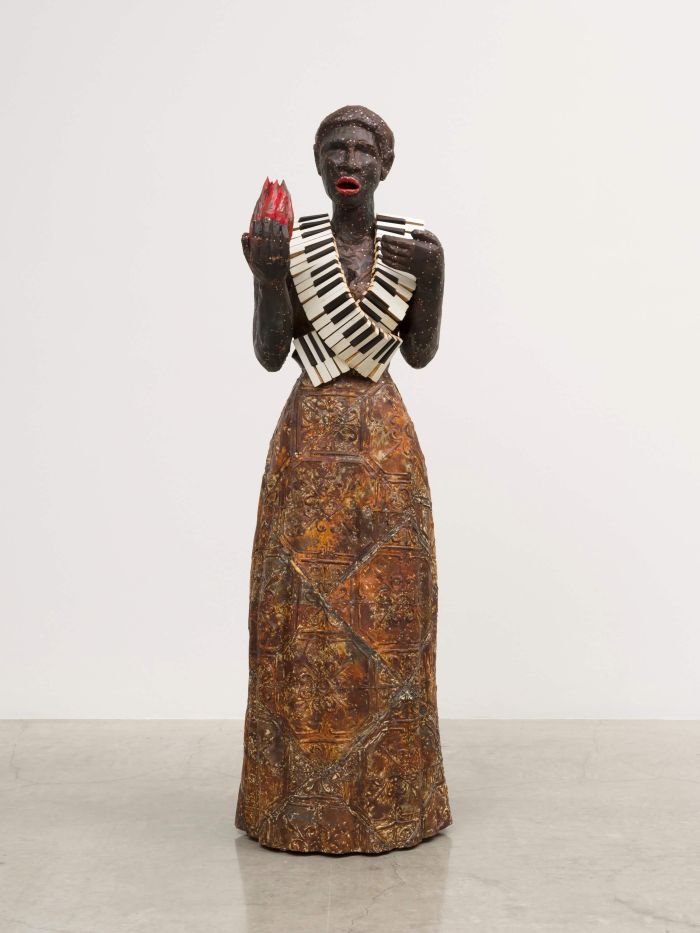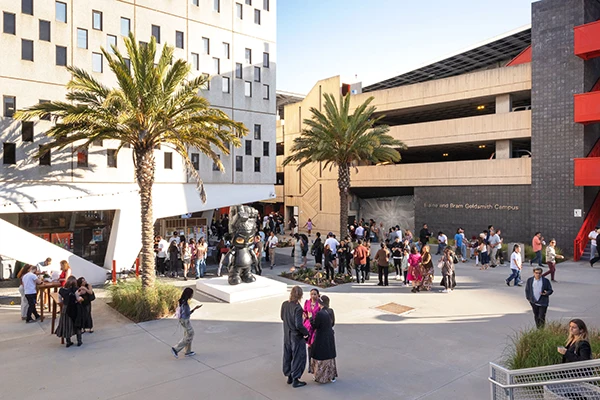One of her latest works, Torch Song, pays homage to blues singers like Nina Simone, as well as Mexican revolutionaries.

Torch Song, 2020 (Wood, ceiling tin, copper, found belt and piano keys, 72 by 24 by 24 inches)
Alison Saar, '81 MFA Fine Arts
As a response to all the vitriol in our nation, I looked for solace in the history of song as protest. Traditionally, a torch song is a lament of lost love, but in the legacy of the blues, songs of protest were often presented under the guise of a love song. Nina Simone, Bessie Smith, Billie Holiday, and Sister Rosetta Thorpe, just to name a few, were all fierce in their resistance to racism and bigotry. Angry times called for angry songs. Today, as we yet again find ourselves in turmoil, in my piece, Torch Song, the chanteuse is righteous and passionate. In her hand the "torch" has been transformed from the smoldering embers of a jilted lover to a fistful of flame, a beacon, a call to rise and fight. Music is her weapon, and piano keys are worn as bandoliers across her chest, paying tribute to the Mexican revolutionaries Emiliano Zapata, Petra "Pedro" Herrera, and other soldaderas in their struggle for equity and human rights.
'Alison Saar was featured in the exhibitions, '"45 at 45: L.A. Louver Celebrates 45 Years with 45 Artists" at L.A. Louver, as well as "Of Aether and Earthe,"at The Armory Center for the Arts in Pasadena and the Benton Museum of Art at Pomona College. Her work, Grow'd, also was featured as part of Otis College's show, "Centennial: 100 Years of Otis College Alumni." She is represented by L.A. Louver.'For more information, please visit Saar's page on the L.A. Louver website here.



